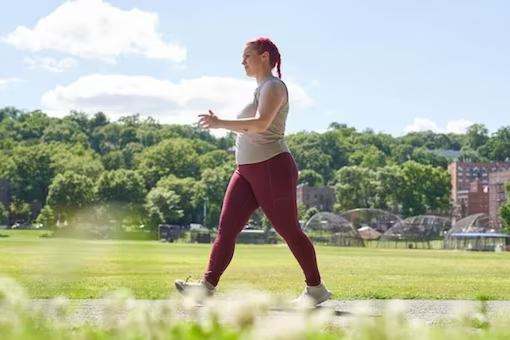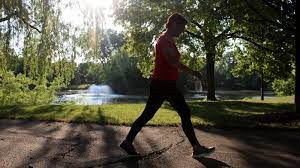Sedentary lifestyles and physical inactivity limit the muscles’ ability to utilise glucose efficiently, which results in a loss of muscle mass and an increase in fat storage, both of which accelerate the onset of diabetes.

Managing type-2 diabetes can be challenging, requiring lifestyle changes like diet and exercise. A recent study in the British Journal of Sports Medicine revealed a connection between walking at a speed of 4 km/hour or faster and a reduced risk of developing type-2 diabetes. The research, examining over 500,000 adults from the US, Japan, and the UK, found that with each 1 km/hour increase in walking pace, there was a minimum 9% decrease in the risk of type-2 diabetes. Those walking at speeds between 3-5 km/hour showed a 15% lower risk of type-2 diabetes, regardless of the duration of their walks. Increase in walking speed by 1 km/hour is associated with a 13% lower risk of stroke.
Moreover, faster walking speeds have been linked to reduced risks of disability, dementia, cardiovascular disease, and overall mortality.

Research has shown that engaging in low-impact outdoor activities for a minimum of half an hour each day, five days a week, lowers the chance of acquiring diabetes. Among these activities, walking stands out as an accessible and effective exercise. Walking for just 30 minutes a day significantly reduces the risk of developing diabetes, especially for those who are already at high risk. However, individuals dealing with heart conditions, joint issues, or difficulty walking should consult their doctor before starting such activities.
There are several categories for walking speeds, including easy or casual, average, or typical, somewhat brisk, and brisk/striding. Studies reveal that for every kilometre-per-hour increase in walking speed over brisk, the chance of acquiring diabetes drops by 9%. Brisk walking is thought to be more advantageous for treating diabetes. Its increased intensity improves insulin sensitivity and glucose metabolism by increasing heart rate and oxygen consumption. Those who have diabetes will benefit most from this since it helps to better regulate blood sugar levels.
Photo Credits: Google










